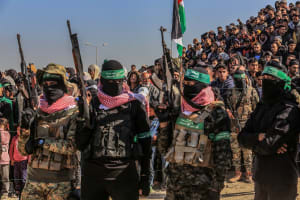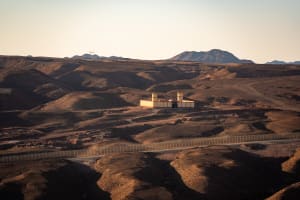IDF destroys Hezbollah’s secret underground missile factory hours before ceasefire
Surrounding targets included a Radwan Force training facility

Just hours before the ceasefire between Israel and Hezbollah came into effect on Wednesday morning, the IDF, in an overnight operation, destroyed the terror group’s main precision-guided missile production site hidden beneath a mountain near the Syrian border.
The IDF reported that the bombardment of the fortified facility, with sections located 70 meters underground, lasted over four hours. According to the military, Israeli intelligence had been gathering information on the strategic site for years.
The underground missile factory stretched for 1.4 kilometers (about a mile long), with one entrance near the town of Janta in the Bekaa Valley, where many of Hezbollah’s strategic assets are concealed. Throughout the war, the IDF struck numerous targets in the area but had not struck that facility until now.
The factory stretched beneath a mountain, with the other entrance being just meters from the Syrian border, allowing easy transport for missile production equipment smuggled from Iran through Syrian territory.
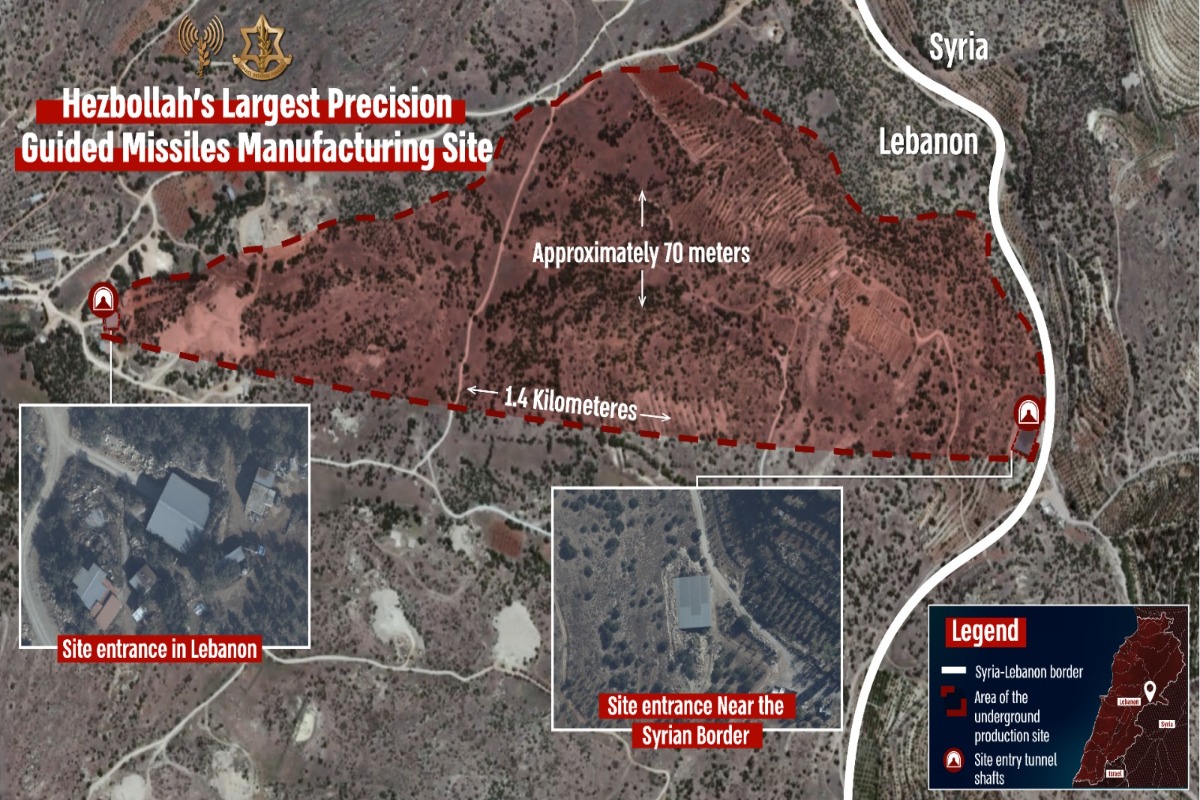
“Due to its proximity, the site was a central point through which thousands of weapons components and even terrorist operatives were smuggled from Syria and Lebanon,” the IDF said.
Hezbollah used the site to produce surface-to-surface missiles – some of them precision-guided, components of different weapons – and to store a range of precision weapons.
On Wednesday, IDF Spokesman Brig.-Gen. Daniel Hagari provided a detailed explanation of the strike, showing infographics and illustrations.
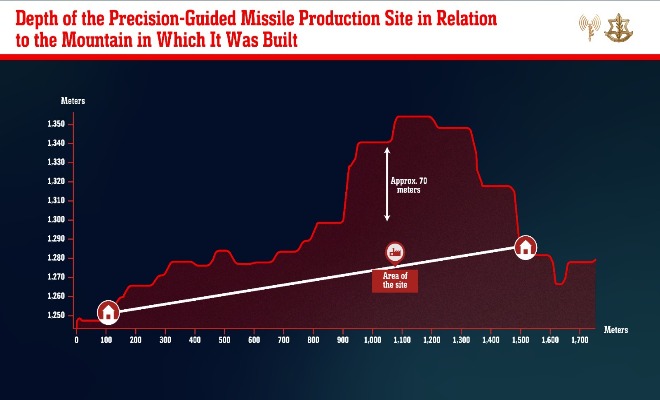
“You can see the production site, which is located underground, within a sprawling underground facility that stretches over a kilometer and a half and is divided into multiple rooms. Each room produces a different component of precision missiles and surface-to-surface missiles,” Hagari said.
“This is Hezbollah's most strategic missile production infrastructure in Lebanon that was struck during the war. The strike was made possible following precise intelligence that was collected and built over the years,” the military stated.
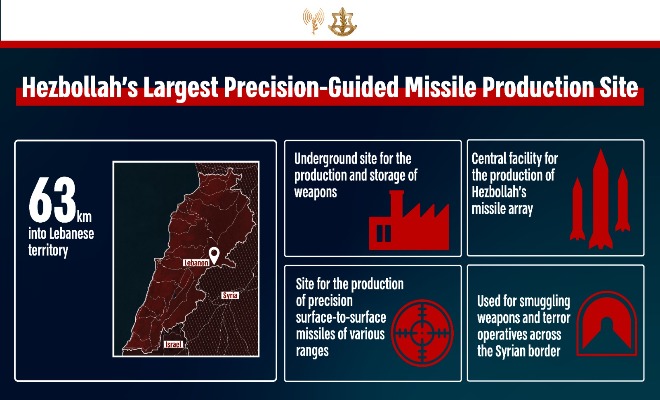
However, the extensive strikes on the hidden underground factory were just one component of a large-scale wave of airstrikes conducted by the Israeli Air Force (IAF) overnight between Tuesday and Wednesday, just before the ceasefire officially took effect.
In preparation for the strike on the underground missile factory, the IDF struck several targets “to eliminate terrorists and dismantle its surrounding infrastructure,” according to the military.
“Among the targets struck was a central compound of Hezbollah’s Radwan Forces where Hezbollah operatives were located. The operatives trained in the compound for Hezbollah’s ‘Conquest of the Galilee’ plan.”
Hagari also stated, “During the night, in the hours before the ceasefire agreement went into effect, we struck around 180 targets across Lebanon.”
This activity included a series of strikes that hit 20 Hezbollah targets in the Lebanese capital of Beirut within only two minutes.
“In addition, yesterday we targeted a crossing where we identified an attempt to transfer weapons from Syria to Hezbollah. This strike is part of the overall effort throughout the war to target Hezbollah's Unit 4400 and the terrorist organization’s economic infrastructure. We have also targeted, in Syria, all attempts to transfer weapons to Hezbollah.”
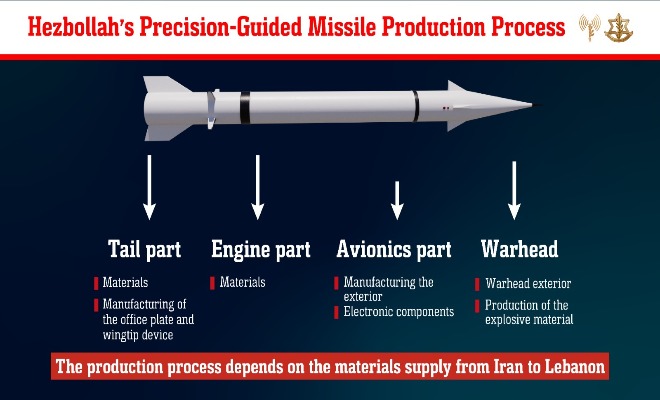
According to the IDF, Hezbollah’s weapon production capacity in Lebanon has significantly increased over the past decade, supported by Iran as part of its strategy to arm the terrorist organization with precision-guided missiles.
This development followed multiple attempts by Iran to smuggle missiles to Hezbollah forces, many of which were thwarted by Israel. As part of this effort, several production sites were established across Lebanon, with the central site being the one targeted in Tuesday night's strike.
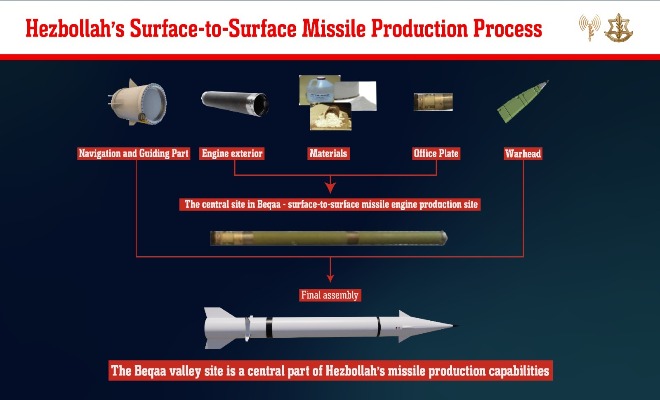
“In recent years, Hezbollah began building and operating this site with Iranian assistance and cooperation. Iranian operatives worked at the site alongside Lebanese Hezbollah terrorists,” the army said.
“This strike constitutes a blow to Hezbollah's weapons production capabilities, which have been severely damaged in recent months.”

The All Israel News Staff is a team of journalists in Israel.





